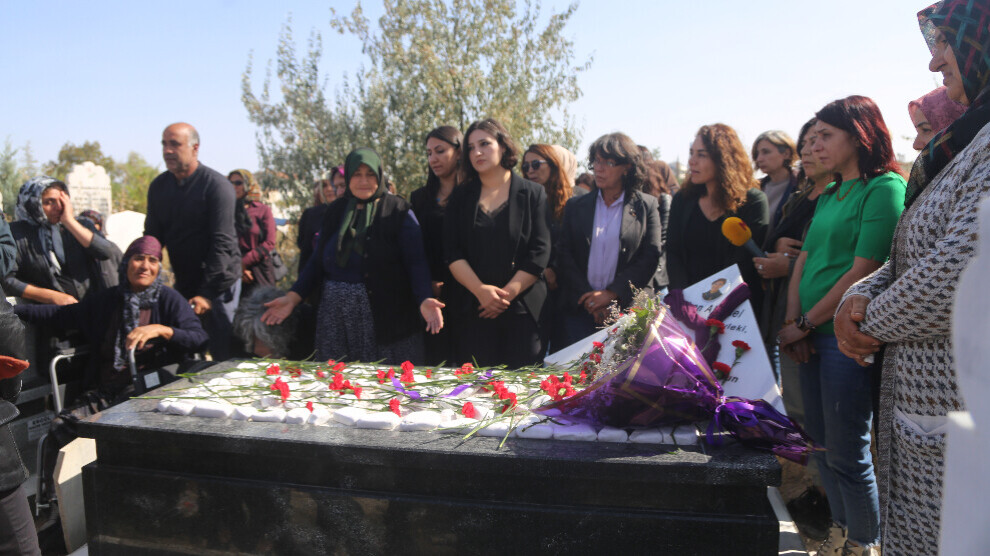Nagihan Akarsel remembered on the first anniversary of her murder
Nagihan Akarsel, who was murdered in Sulaymaniyah one year ago, was remembered at the scene of the crime and at her grave in Konya.
Nagihan Akarsel, who was murdered in Sulaymaniyah one year ago, was remembered at the scene of the crime and at her grave in Konya.

The Kurdish journalist, academic and women’s rights defender Nagihan Akarsel was assassinated when leaving her home in Bakhtiary district in the town center of Sulaymaniyah in the Kurdistan Region in Iraq on 4th October 2022. While the killer of Nagihan Akarsel was identified as Ismail Peker from Ankara, hired by the Turkish Intelligence Organization (MIT) to carry out the assassination, no legal steps have been taken to date to convict the perpetrator and clarify the political background of this murder.
Commemorative events took place today in many different places in Kurdistan and Turkey, including at the scene of the crime in Sulaymaniyah and at her grave in her birthplace of Cihanbeyli in the central Anatolian province of Konya.
Many people gathered in front of the flat of the Kurdish activists today for a commemoration. Women laid flowers at the scene and vowed to continue Nagihan Akarsel's struggle.
Relatives and companions commemorated Nagihan Akarsel at the cemetery in the Gölyazı village in the Cihanbeyli district of Konya. The event was attended by activists from the Free Women's Movement (TJA), employees of the Jineolojî magazine, members of the Dicle-Fırat Journalists' Association (DFG) and politicians from the Green Left Party, Peoples’ Democratic Party (HDP) and Democratic Regions Party (DBP), including the Green Left Party MPs Adalet Kaya, Zeynep Oduncu and Sebahat Erdoğan.
Adalet Kaya said in a speech: "Nagihan has paved a way for us that we will never give up.”
Organized by TJA and Women’s Assemblies, further commemorative events for Nagihan Akarsel took place in the cities of Mardin, Adana and Mersin where women lit candles for the slain Kurdish activist and vowed to enhance their struggle, to build a democratic system dominated by women’s freedom, and to continue to shout out “Jin, Jiyan, Azadi” (Woman, Life, Freedom).